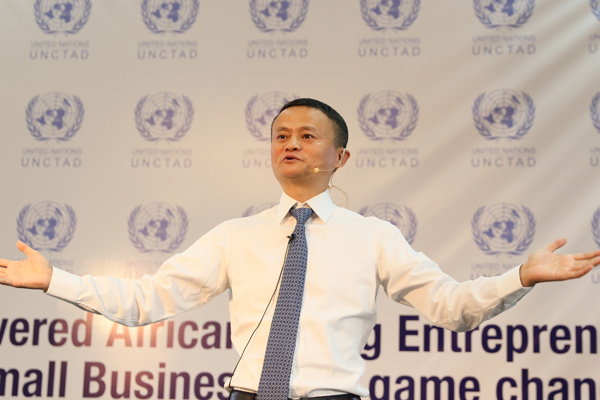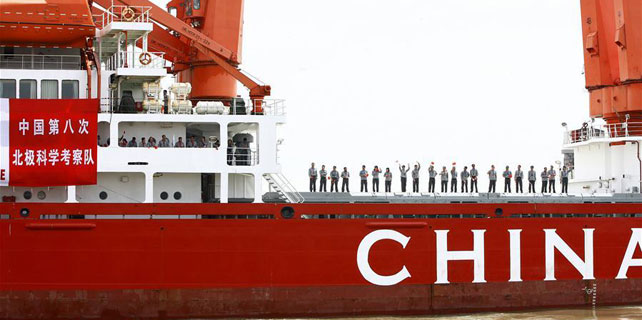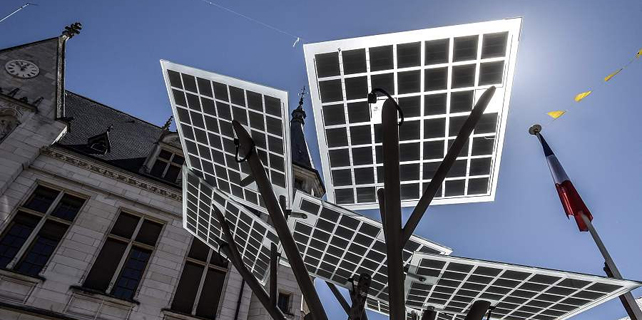'Keep trying,' Jack Ma urges Kenyan youth
 |
|
Jack Ma, the founder and executive chairman of Alibaba Group gives lectures to young entrepreneurs in Nailab. [Photo by Liu Hongjie/chinadaily.com.cn] |
Thrilled by the opportunities, internet speed and the passion of Kenyan youths, Alibaba Group boss Jack Ma says his company wants to partner with local enterprises to enhance e-commerce in Kenya.
"When I arrived in Kenya, my perception about Africa changed immediately," Ma said. "The world is full of worries, but in Africa, I have seen passion and expectation. People are ready for change. This is exactly what I saw in China 30 years ago."
Ma said Kenya has the advantage of high-speed internet beyond his expectations. Additionally, he says many young entrepreneurs that he met had great ideas, passion and belief in the future - the key ingredients for economy growth.
The 53-year-old Chinese tycoon made the comments during a one-day tour of Nairobi on July 20. He met both established and upcoming business people, as well as young people.
He expressed his company's desire to partner with local enterprises to promote e-commerce which he said was the future of entrepreneurship.
"We are interested in expanding to Africa and currently we are looking for partners from the continent. According to the Alibaba model, we do not plan to globalize the company but the e-commerce platform," he said.
Ma said Alibaba Group was not an e-commerce company like Amazon, meaning they don't buy and sell, but they enable consumers to buy by globalizing e-commerce.
"Our aim is to enable everybody to buy, sell, pay, deliver and travel globally. One of my main reasons for visiting Africa was to learn. Through my interaction with the local entrepreneurs, I realized that they are good at building platforms. We will try our best to help them grow," he said.
He said globalization as creation of jobs and value for local people, as well as making technology and finance inclusive.
Ma said people often complain about a lack of infrastructure, noting that what is needed is not necessarily infrastructure but people's passion and belief for the future especially for young people.
"When I started my business in my apartment 18 years ago, there was no infrastructure or mobile phones. But I had a passion which kept me going," he said.
Ma said real entrepreneurs don't wait for infrastructure, they built it.
"The reason why e-commerce grew so fast in China is because the country had a terrible infrastructure for e-commerce. People challenged me so much, about the many systems I lacked including the internet but I kept going," he said.
In China, he said e-commerce has become a pillar of China's economy instead of a supplement. It's created new business norms, transforming the country's economic landscape - it is the main course, rather than the dessert as it is in the United States.
In the next 30 years, Ma said the world is going to experience a big change in terms of internet revolution. All the entrepreneurs will be "tech-preneurs".
"In future, there will be no 'made in China or made in America', it will be made in the internet. Entrepreneurs will buy raw materials from a particular place, design in another and sell globally. If you are connected to the internet, think globally and win locally. Keep on doing that, if we can succeed you can as well and if you can't succeed someone can, but keep trying," he said.









